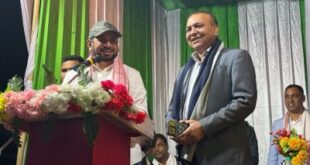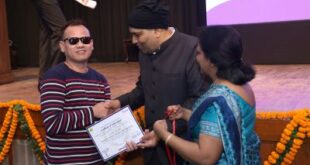In India, majority of the population resides in the rural areas. Women in rural India are becoming more involved in a range of professions and substantial progress has been made in the direction of rural development. However, there is much more that can be done to alleviate the condition of women in rural India.
A recent study says that although women make up a sizable percentage of the workforce, working women’s proportion in the overall labour force is declining. Studies show that as of 2021, just 19% of women in India who were 15 years of age and older were employed, compared to 70% of men. Rural Institute of Skill Empowerment (RISE) mentions there are several reasons for this gap. Let us look deeper into each of these reasons:
PERSONAL CHALLENGES: The biggest challenge for rural women is that they do not have access to education. And it is not because the parents do not want to send them to schools/colleges. It is because of not having schools/colleges in close proximity, inadequate and clean toilet facilities, and unsafe mode of transportation, unlike metropolitan areas which have school buses for safe transportation and adequate sanitation and other facilities. Many a times young girls are also denied education because they are sent to work in the urban areas as domestic workers due to financial constrains at home.
SOCIAL CHALLENGES: Young girls in the rural areas are also denied education due to cultural and social taboos and biases. Even today in rural communities’ families prefer to send their boys to schools and colleges rather than the girls as boys are seen as breadwinners for the family. Girls are still seen as a burden and are married off early. Another challenge here are the time bound restrictions imposed on girls. They are hardly allowed to go out in the evening and going out alone is never an option. Therefore, there is no focus on making young girls independent and self-sufficient.
FINANCIAL CHALLENGES: Since there is no focus on making women independent, they never get the opportunity to learn about or manage money. Before getting married, rural women are financially dependent on their parents, and once they are married, they depend on their husbands. Which also means that they are unable to make decisions and stand up for themselves, especially in cases of domestic abuse.
HOW CAN SKILL DEVELOPMENT EMPOWER WOMEN?
Today skill development organisations collaborate with the government to create programmes and deliver training which can support women in becoming self-employed and independent. These training courses have been specifically designed keeping in mind the needs of rural women. Given the difficulties, these training programmes are held in places that are in proximity so that women do not have to travel far. These courses are designed in a way which makes them easy to complete so that women require little time away from home, considering their household responsibilities. According to a study by the National Skill Development Corporation (NSDC), women who receive skill training are 2.5 times more likely to be employed compared to those who do not receive training.
Skill Development organizations like RISE also provide life skill training so that the women can become aware, active, and responsible citizens. Along with these life skills, subjects like financial responsibility, health and hygiene, civic rights and responsibilities, travel safety, career planning, and stress management are also covered in these programmes.
Skill development can also lead to improved health and education outcomes among women in rural India. According to a study by UN Women, women who receive skill training are more likely to invest in their health and education, leading to improved health outcomes and increased literacy rates.
In conclusion, skill development is a crucial factor in promoting economic independence among women in rural India. The government and other organizations should focus on providing women the access to education and skill development programs to help them become economically independent. With the right skills and training, women can break free from the shackles of illiteracy, social discrimination, and contribute to the growth of their families, communities, and the nation.
(This article has been written by Kannan E, CEO, Rural Institute for Skill Empowerment. https://www.rise-india.org/ )
 Newspatrolling.com News cum Content Syndication Portal Online
Newspatrolling.com News cum Content Syndication Portal Online






